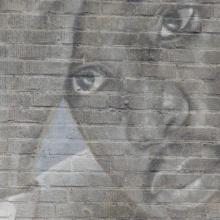An interview with Ignacio Hernandez
Cover Story
The man who filmed the aftermath of Nagasaki and Hiroshima bombings tells his story

Image via Seattle.roamer / Flickr
This article originally appeared in the January 1983 issue of Sojourners.
Somehow Martin King refuses to die within us, among us. Fifteen years after it was delivered, his historic Riverside Church speech, "Beyond Vietnam," reappears and thrusts upon us a King we had largely chosen to forget. Even now it would be tempting to take this cry from the heart of a driven, searching, magnificent brother and file it away as a document for museums and other honorable places.
But neither the fiery signals rising from some of our latest potential Vietnams in Central America, South Africa, or the Middle East, nor the mounting anguish of the betrayed and disinherited of our own land will allow us to escape the unresolved issues of the past or avoid the costly and accurate vision of our comrade in the faith. The speech not only requires us to struggle once more with the meaning of King, but it also presses us to wrestle as he did, with all of the tangled, bloody, and glorious meaning of our nation (and ourselves), its purposes (and our own), its direction (and our own), its hope (and our own).
Recently the name of Martin Luther King Jr. has been in the public arena primarily as the person whose birthday should or should not become a legal holiday. But this rather smoothed-off, respectable national hero is not the King of "Beyond Vietnam." Those who have, with all the best and most understandable intentions, pressed for King's birthday as an official holiday seem to have enshrined the King of 1963. In a way, that is a more comfortable image for us all: the triumphant King of the March on Washington, calling a nation and a world to a magnificent dream of human solidarity.
But all that,was before the assassins' bombs ripped out the life of the Sunday School children in Birmingham, before the fires of rebellion scourged the northern cities and moved King into Chicago, before the cry of black power was raised, before courageous and radical spokespersons like Malcolm X and the leaders of the Student Non-Violent Coordinating Committee (SNCC) had begun to testify against the steadily rising tide of destructive U.S. imperialism in Vietnam, before King decided to break what he called the silence of betrayal and speak his own truth concerning his nation's role in Vietnam and in all the world's non-white revolutionary struggles.
Sometimes we wish to forget that by April 1967, King was a beleaguered public figure. He had refused to join the fearful litany of condemnation mounted by the civil rights establishment against the militant demand for black power, and for that he was fiercely attacked by moderates and liberals. On the other hand, some of the younger black and white radicals seemed to think that their best contributions to revolution were measured by the harshness of their criticism of King's nonviolence and "moderation."
In early June of 1963, when I was 15 years old, a group of us including Fannie Lou Hamer and Annelle Ponder of SCLC went from Greenwood, Mississippi, to a voter education workshop in Charleston, South Carolina.
I live with 10 men and women who are very poor. None of them can talk; only six can walk. All of them have a very limited level of understanding. But each one has a heart.
My first encounter with Francis of Assisi occurred when I was just finishing my studies and embarking on a promising future.
Francis Bernadone gave birth to a charismatic movement that swept the world of his time.
He was called "Il Poverello," the little poor man. The religious poverty of Francis is prominent in his rich legacy to the world, but it is often misunderstood.
When we think about St. Francis, let's not overlook Pietro Bernadone. He was the father of the saint, the Assisian merchant who took the brunt of his son's conversion.
When my brother and I were boys we heard a great deal about St. Francis from a dear friend of ours, for whom poverty was, in itself, the highest of virtues.

